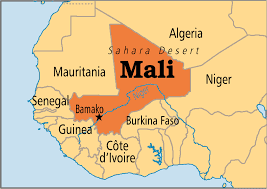APA-Bamako (Mali) – The authorities have put an end to the Agreement for Peace and Reconciliation resulting from the Algiers process signed in 2015 with the rebel movements.
In a note published recently, the NGO International Crisis Group (ICG) indicated that the recapture of Kidal by the Malian army does not mean that the conflict is over. According to this organisation, it would be wiser to put in place a political process to consolidate the return to peace.
For the NGO, the significant drop in the intensity of fighting between the rebels of the Cadre Stratégique Permanent (CSP) and the Malian Armed Forces (FAMas) around Kidal does not put an end “to a ten-year
conflict with deep political roots.” It warns of the “serious humanitarian consequences” that could arise if this situation is not consolidated by a political process. A process, it believes, capable of improving the chances of achieving lasting political stability in Mali.
The NGO also points out that “neither the transitional authorities nor the armed rebel groups seem in a position to win the war decisively.” In its view, a stalemate in the conflict could ultimately weaken both sides and have repercussions throughout the central Sahel.
iCG states that “the current conflict has exacerbated the polarisation between those within the Malian population who support the authorities in Bamako and those who remain close to the CSP.”
It believes that the jihadists have been less affected by the loss of Kidal than the CSP, whose stronghold it was. However, she warns that the jihadists could take advantage of this situation to join forces with the rebels and fight the state, as they did in 2012, when the current armed conflict in Mali began. A situation that could enable
them “to strengthen their influence in the country,” notes ICG.
The NGO points out that for the government in power and part of public opinion, the recapture of Kidal by the FAMas “symbolises the triumph of the military approach to the detriment of the political settlement embodied by the Algiers agreement during its eight years of existence.”
The non-governmental organisation emphasized the difficulty “of imagining a lasting return to peace in northern Mali without a political process allowing for dialogue and reconciliation, and offering prospects for better local governance for the benefit of the people.” In its view, with the clashes of recent months, the rekindling of the political process looks complicated and uncertain, even though it is essential. “It is the path that offers the best
chances of lasting peace and stability for northern Mali and its people,” the NGO insists.
ICG welcomes the recent offer of inter-Malian dialogue, launched by the transitional authorities at the end of 2023. It sees this as “an opportunity to be seized so that negotiation once again prevails over confrontation.” This is “the only way to achieve lasting peace,” it adds. However, the NGO insists on the need to involve the real players in the conflict, including those from the rebellion, “in order to negotiate a ceasefire and move towards inclusive talks.”
In a recent interview on national television, Mali’s Minister for National Reconciliation, Colonel-Major Ismael Wague, said that it was necessary “as a matter of priority to deal with the legal and judicial issues inherent” in the rebels’ involvement in attacks on the Malian army and civilians. He was referring to the proceedings brought
against them by the Malian justice system since November 2023.
MD/ac/fss/abj/APA


